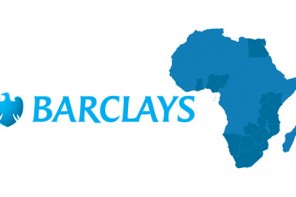 African mentality on education is distinct and limiting. An average African parent wants their child to study one of the ‘top brass’ courses such as Law, Medicine and Engineering. But just how viable is this in the long term?
African mentality on education is distinct and limiting. An average African parent wants their child to study one of the ‘top brass’ courses such as Law, Medicine and Engineering. But just how viable is this in the long term?
Recently, a Nigerian, Osarieme Omonuwa, broke the jinx at the University of Reading in the UK to become the first black woman to earn a first class degree in the history of the 121-year-old institution.
At 22, Osarieme Anita Omonuwa could be described as a genius just waiting to be called a legal legend in Nigeria. There are many reasons for that. Her determination to excel and continuous drive to conquer new academic heights are proofs that for this young lawyer, the future holds great things.
On a recent week, the International Conference Centre in Abuja, the venue of this year’s ceremony for the lawyers called to the bar erupted with a thunderous applause as Omonuwa marched forward to receive her numerous academic laurels. It was a day she would live to remember.
However, something caught my eye about this otherwise success story. Her father, Omoruyi Augustine Omonuwa (SAN), a legal luminary based in Benin City, played a hand in her career choice. He admitted that he had influenced her to study Law. This is despite the fact that she excelled in other areas such as Mathematics. She even won a certificate for being the best at mathematics in her state while in school.
This begs the question, how much say should parents have on their children’s career path?
Anita was a success story, but how many of her kind truly exist? This, however, cannot be said for every Tom, Dick and Harry on the African continent.
According to a research done by the University of La Verne in California, U.S., 50% – 70% of students change their majors at least once, most will change majors at least 3 times before they graduate. An estimated 6% of these say they were influenced by friends and family. In today’s world of entrepreneurship, some may even be drawn to start their own businesses. In line with this, Survey Telefonica states that 68% of millennials in the Middle East and Africa agree that they have opportunities to become entrepreneurs in their own countries.
Therefore, as a parent, what is the best thing to do for your child? First, be open-minded. When I told my parents that I was not interested in Law as my course of choice, they did not put up a fuss. They were fine with it. This brings assurance to both parties. Also, be supportive and excited with your child. Together you can decide the best institutions to go and study their chosen course. Finally, help your child understand the career paths available in that course and that they should be open with you in case they have any other doubts concerning their career. Based on my experience, this really works and could lead to more productivity in the long run.
Credits: africanspotlight.com




